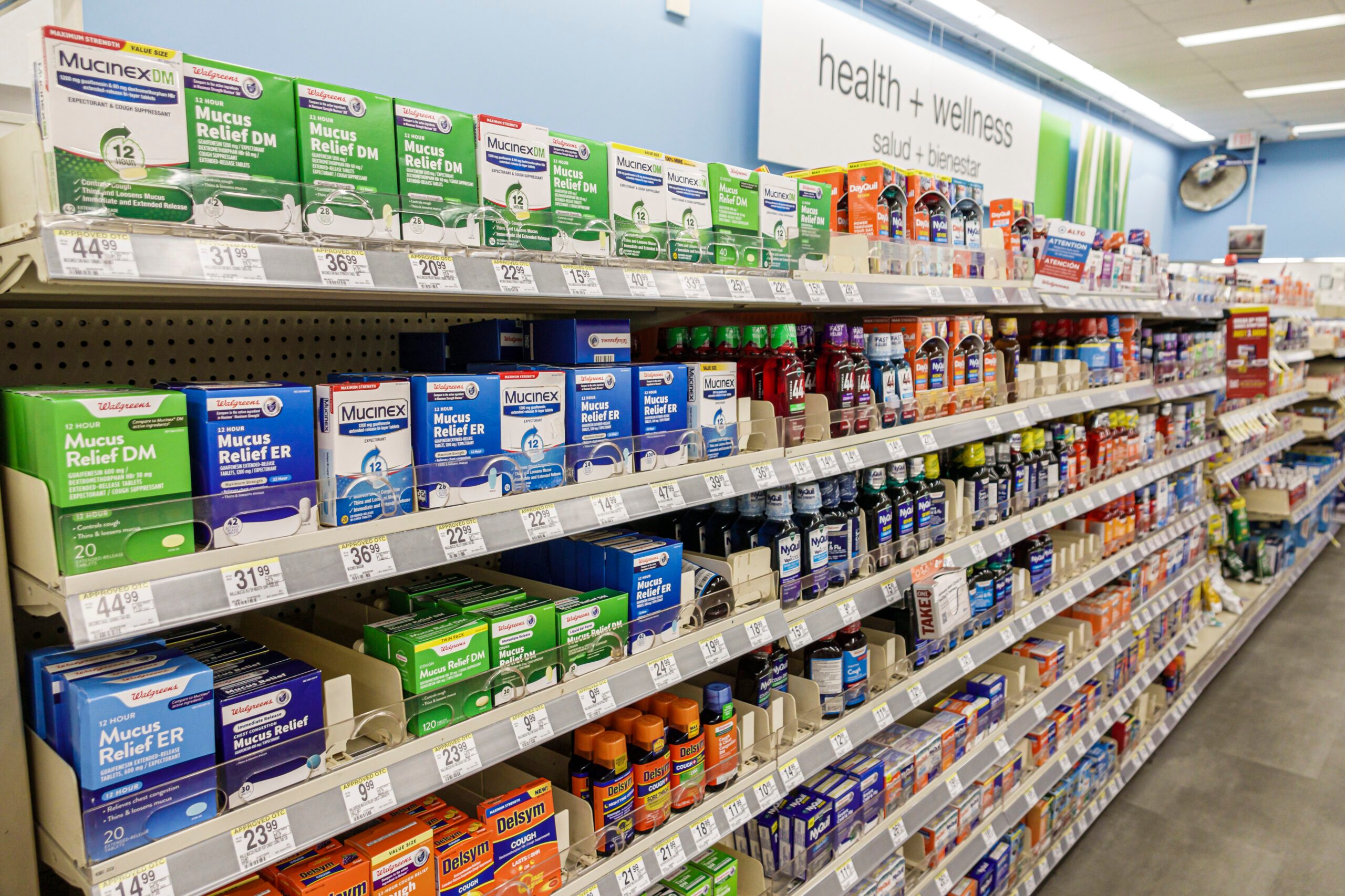For those sniffling, sneezing, stuffy head symptoms lurking right around the corner, see whether your preferred medicine will be affected.

Multiple Over-the-Counter Decongestants May Be Pulled from the Market, Warns the FDA

Maybe it’s Mucinex or Sudafed that always helps you get over the hump with a nasty cold, or maybe you’re more of a NyQuil person.
Whichever cough and decongestant medicine you buy over-the-counter (OTC), the FDA is moving forward with their concerns that a common ingredient lacks effectiveness.
On November 7, the U.S. Food and Drug Administration (FDA) proposed removing oral phenylephrine as an active ingredient used in some over-the-counter (OTC) drugs for the temporary relief of nasal congestion. “The proposed order is based on effectiveness concerns, not on safety concerns,” the FDA notes.
As a result, several cold and cough formulations of name-brand medications like Advil, NyQuil, Sudafed, Robitussin, Tylenol and Theraflu could soon be less accessible or no longer available at all. Generic and store-brand decongestants such as those sold under Walmart’s Great Value label could also be affected.
The proposal came a year after the FDA held a 2023 Nonprescription Drug Advisory Committee meeting to discuss the ingredient, which was approved 30 years ago. According to the FDA’s current proposal, the group “unanimously concluded that the current scientific data do not support that the recommended dosage in the OTC cold, cough, allergy, bronchodilator and antiasthmatic drug products monograph for orally administered phenylephrine’s effectiveness as a nasal decongestant.”
“It is the FDA’s role to ensure that drugs are safe and effective,” said Patrizia Cavazzoni, M.D., director of the FDA’s Center for Drug Evaluation and Research (CDER). “Based on our review of available data, and consistent with the advice of the advisory committee, we are taking this next step in the process to propose removing oral phenylephrine because it is not effective as a nasal decongestant.”
The FDA emphasizes that their announcement is not a final order, and therefore won’t affect which products can be marketed at this time. Though phenylephrine is commonly used as an ingredient in decongestant nasal sprays, the FDA’s proposal, if approved, will only impact orally-administered drugs that include the ingredient.
“Consumers should know that a range of safe and effective drugs and other treatments are available to temporarily relieve congestion symptoms due to allergies or a common cold,” said Theresa Michele, M.D., director of the Office of Nonprescription Drug Products in CDER. “Consumers can also talk to their doctor or pharmacist about ways to treat these symptoms.”
If you’re wondering what to shop for instead, the FDA says there are several alternative ingredients that may be more effective than phenylephrine at reducing symptoms of congestion. These include:
- pseudoephedrine
- nasal sprays with nasal decongestants
- nasal sprays with corticosteroids
- nasal sprays with antihistamines
As we enter the cold and flu season, it’s a good idea to talk to your doctor or pharmacist about which medications might be right for you. Always read the drug fact labels on over-the-counter medications, and be sure to tell your doctor if your symptoms persist for more than seven days.
For daily wellness updates, subscribe to The Healthy by Reader’s Digest newsletter and follow The Healthy on Facebook and Instagram. Keep reading:


















